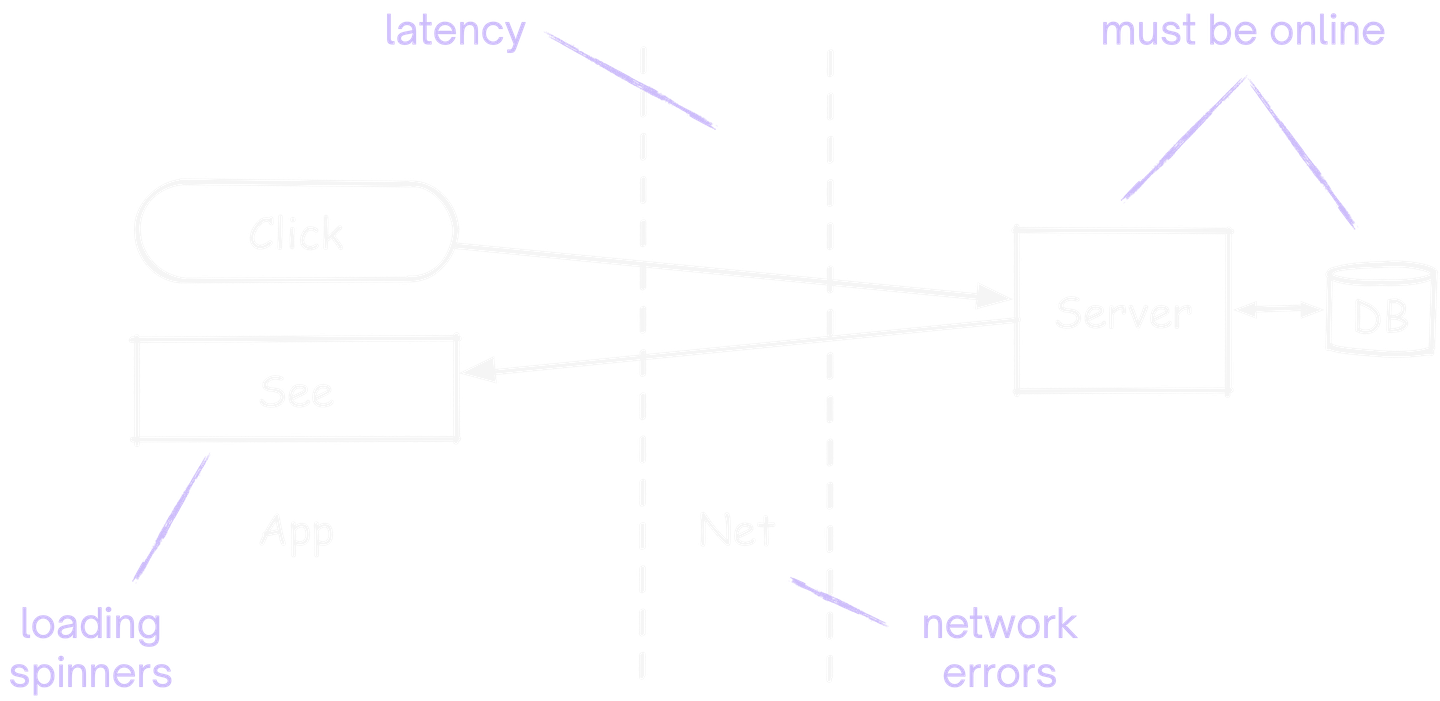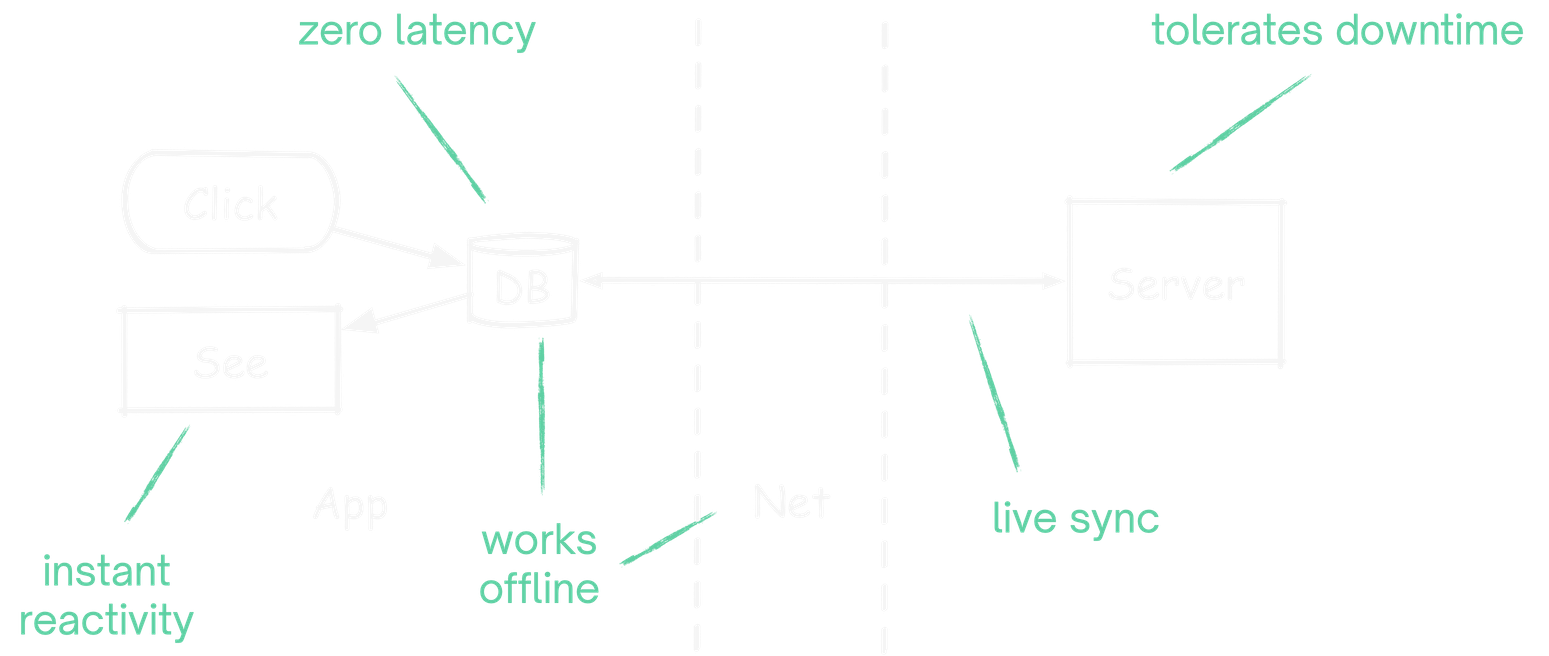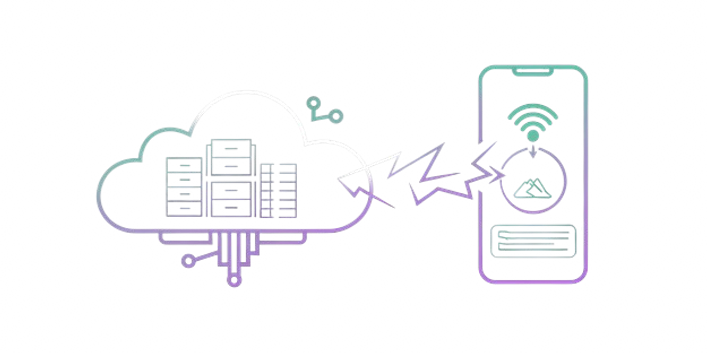Building resilient software that works offline
Cloud-first software needs to be online in order to work. If the network connection fails or the backed is down, the software breaks.
Local-first software defaults to working. It's resilient by design. If the network connection fails, it still works. If the backed is down, it still works.
Electric is a sync engine that supports building local-first software. Making your apps more reliable as well as faster, more modern and naturally collaborative.
Cloud-first software
With cloud-first software, you're always coding across the network. This means you always need to be aware of potential network latency and failure modes like network errors.

Local-first software
Local-first is a new architecture, where your app code talks to a local data store and data syncs in the background. With local-first, you don't need to think about the network, it's abstracted away and your app code can just work against local data.

Benefits of local-first
Local-first apps are:
- faster, with zero network latency making them feel super snappy and instant to use
- collaborative, with realtime sync and multi-user collaboration built in
- resilient, working offline and tolerating downtime
Product-led growth
As examples like Figma, Linear and Superhuman have shown, apps build on a local-first architecture provide a significantly better UX. This is a key ingredient of product-led growth, in categories where users can vote with their feet and choose their own software.
Sync engine architecture
With local-first software, instead of talking to web-service APIs, you app code talks to a local data store that is available offline. Data is then synced in the background, when you have connectivity. To sync data in the background, you need a sync engine.
Local-first apps are built on sync engine architecture.
How does Electric help?
Electric is a sync engine. It syncs little subsets of your Postgres data into local apps and services.

This keeps your local data up-to-date and in sync between users and devices. Allowing you to build local-first apps that are resilient and work offline.

